Volvo XC40 vs VW Golf - Differences and prices compared
Compare performance (197 HP vs 333 HP), boot space and price (36800 £ vs 25200 £ ) at a glance. Find out which car is the better choice for you – Volvo XC40 or VW Golf?
Costs and Efficiency:
Price and efficiency are often the first things buyers look at. Here it becomes clear which model has the long-term edge – whether at the pump, the plug, or in purchase price.
VW Golf has a clearly advantage in terms of price – it starts at 25200 £ , while the Volvo XC40 costs 36800 £ . That’s a price difference of around 11567 £.
Fuel consumption also shows a difference: VW Golf manages with 1.10 L and is therefore clearly more efficient than the Volvo XC40 with 6.50 L. The difference is about 5.40 L per 100 km.
Engine and Performance:
Under the bonnet, it becomes clear which model is tuned for sportiness and which one takes the lead when you hit the accelerator.
When it comes to engine power, the VW Golf has a convincingly edge – offering 333 HP compared to 197 HP. That’s roughly 136 HP more horsepower.
In acceleration from 0 to 100 km/h, the VW Golf is convincingly quicker – completing the sprint in 4.60 s, while the Volvo XC40 takes 7.60 s. That’s about 3 s faster.
In terms of top speed, the VW Golf performs distinct better – reaching 270 km/h, while the Volvo XC40 tops out at 180 km/h. The difference is around 90 km/h.
There’s also a difference in torque: VW Golf pulls clearly perceptible stronger with 420 Nm compared to 300 Nm. That’s about 120 Nm difference.
Space and Everyday Use:
Beyond pure performance, interior space and usability matter most in daily life. This is where you see which car is more practical and versatile.
Both vehicles offer seating for 5 people.
In curb weight, VW Golf is evident lighter – 1307 kg compared to 1688 kg. The difference is around 381 kg.
In terms of boot space, the Volvo XC40 offers to a small extent more room – 452 L compared to 381 L. That’s a difference of about 71 L.
In maximum load capacity, the Volvo XC40 performs hardly perceptible better – up to 1328 L, which is about 91 L more than the VW Golf.
When it comes to payload, Volvo XC40 slight takes the win – 532 kg compared to 508 kg. That’s a difference of about 24 kg.
Who wins the race in the data check?
The VW Golf is clearly superior overall in the objective data comparison.
This result only shows which model scores more points on paper – not which of the two cars feels right for you.
Costs and Consumption
View detailed analysis
Engine and Performance
View detailed analysis
Dimensions and Body
View detailed analysis
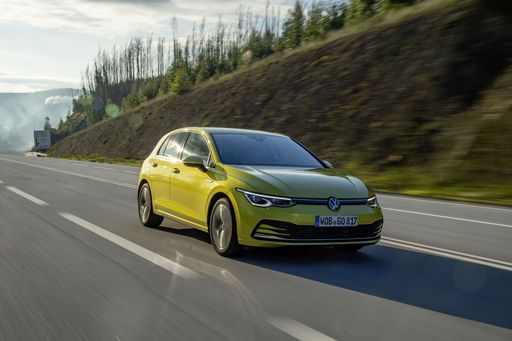
VW Golf
Volvo XC40
The Volvo XC40 wraps Scandinavian minimalism into a compact, city-ready SUV with a premium cabin that feels both practical and grown-up. It will suit buyers who prize safety, clever storage and a composed ride, proving that small dimensions don't mean small personality.
details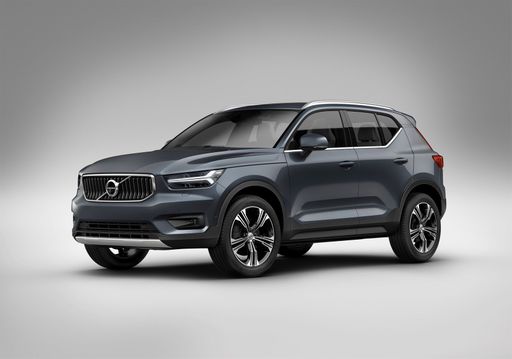


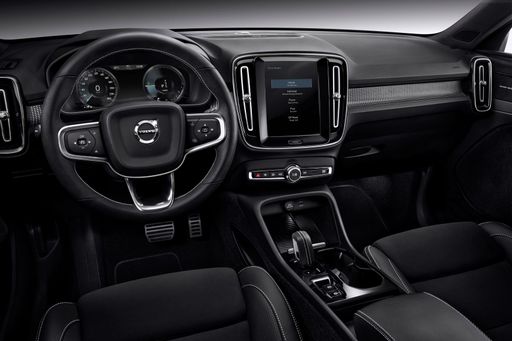

VW Golf
The VW Golf remains the everyman’s favourite — cleverly balanced, composed and just posh enough to feel grown-up without pretending to be something it’s not. It slips through town and eats up longer trips with a refined cabin, practical layout and a kindly, capable character that turns everyday driving into something a little bit special.
details
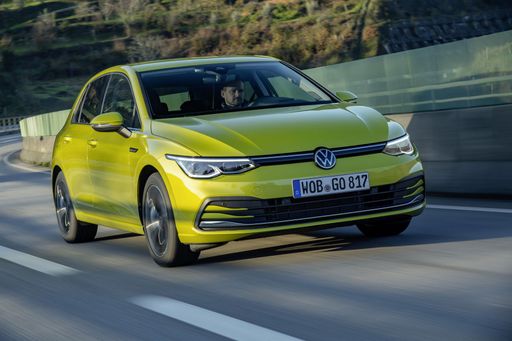
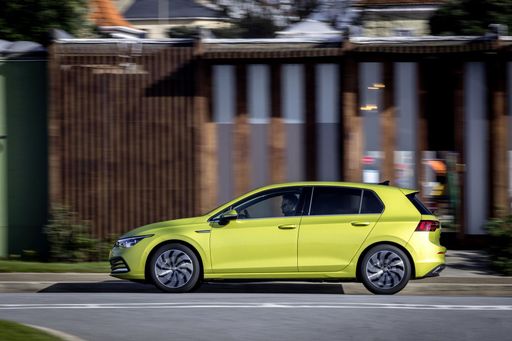
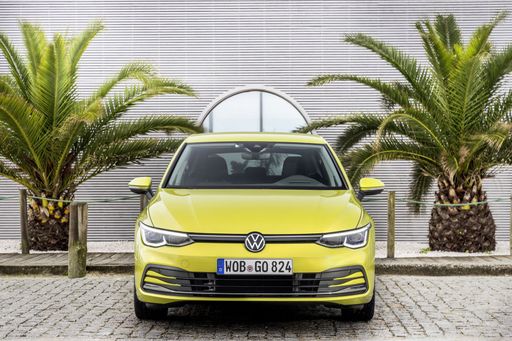
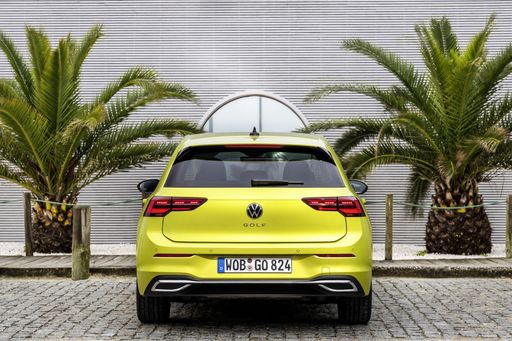
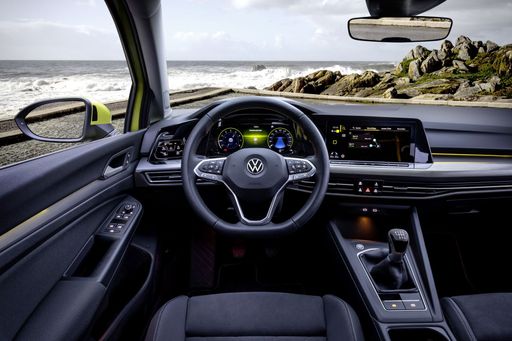
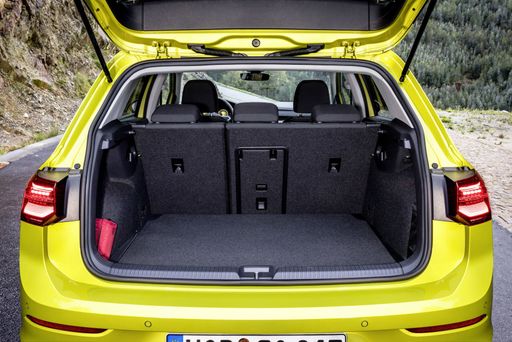
Costs and Consumption |
|
|---|---|
|
Price
36800 - 47200 £
|
Price
25200 - 47600 £
|
|
Consumption L/100km
6.50 L
|
Consumption L/100km
1.1 - 8.1 L
|
|
Consumption kWh/100km
-
|
Consumption kWh/100km
-
|
|
Electric Range
-
|
Electric Range
131 - 143 km
|
|
Battery Capacity
-
|
Battery Capacity
19.70 kWh
|
|
co2
147 - 148 g/km
|
co2
25 - 184 g/km
|
|
Fuel tank capacity
54 L
|
Fuel tank capacity
40 - 55 L
|
Dimensions and Body |
|
|---|---|
|
Body Type
SUV
|
Body Type
Hatchback
|
|
Seats
5
|
Seats
5
|
|
Doors
5
|
Doors
5
|
|
Curb weight
1688 kg
|
Curb weight
1307 - 1662 kg
|
|
Trunk capacity
452 L
|
Trunk capacity
273 - 381 L
|
|
Length
4425 mm
|
Length
4282 - 4296 mm
|
|
Width
1863 mm
|
Width
1789 mm
|
|
Height
1652 mm
|
Height
1454 - 1483 mm
|
|
Max trunk capacity
1328 L
|
Max trunk capacity
1129 - 1237 L
|
|
Payload
532 kg
|
Payload
438 - 508 kg
|
Engine and Performance |
|
|---|---|
|
Engine Type
Petrol MHEV
|
Engine Type
Petrol MHEV, Petrol, Diesel, Plugin Hybrid
|
|
Transmission
Automatic
|
Transmission
Automatic, Manuel
|
|
Transmission Detail
Dual-Clutch Automatic
|
Transmission Detail
Dual-Clutch Automatic, Manual Gearbox
|
|
Drive Type
Front-Wheel Drive
|
Drive Type
Front-Wheel Drive, All-Wheel Drive
|
|
Power HP
163 - 197 HP
|
Power HP
116 - 333 HP
|
|
Acceleration 0-100km/h
7.6 - 8.6 s
|
Acceleration 0-100km/h
4.6 - 10.2 s
|
|
Max Speed
180 km/h
|
Max Speed
202 - 270 km/h
|
|
Torque
265 - 300 Nm
|
Torque
220 - 420 Nm
|
|
Number of Cylinders
4
|
Number of Cylinders
4
|
|
Power kW
120 - 145 kW
|
Power kW
85 - 245 kW
|
|
Engine capacity
1969 cm3
|
Engine capacity
1498 - 1984 cm3
|
General |
|
|---|---|
|
Model Year
2024
|
Model Year
2024 - 2025
|
|
CO2 Efficiency Class
E
|
CO2 Efficiency Class
D, F, G, C, B
|
|
Brand
Volvo
|
Brand
VW
|
What drive types are available for the Volvo XC40?
The Volvo XC40 is available as Front-Wheel Drive.




